Potpourri
Grow your Rose Float knowledge with a few fun facts from program insiders.
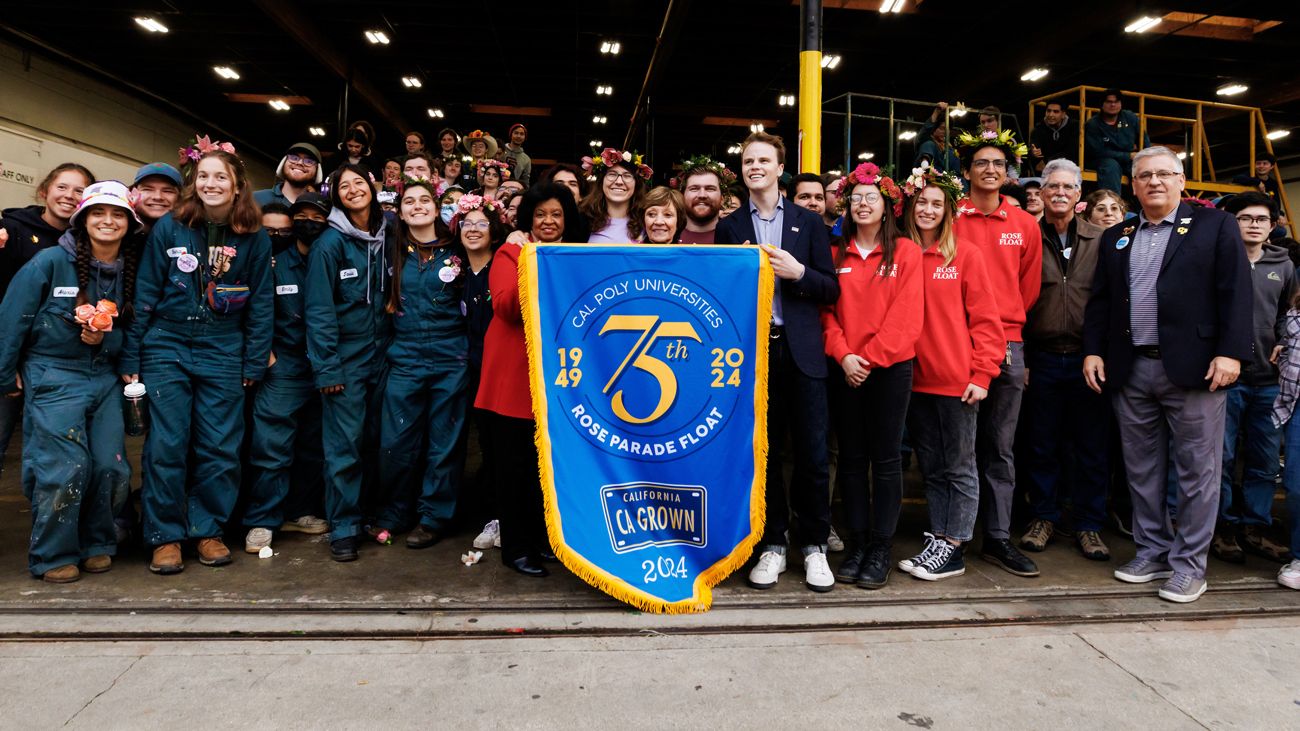
While surveying the Rose Float program’s rich history, we discovered a few fun facts (and Easter eggs) that may surprise you.
Cal Poly is among the most seasoned float builders in the parade
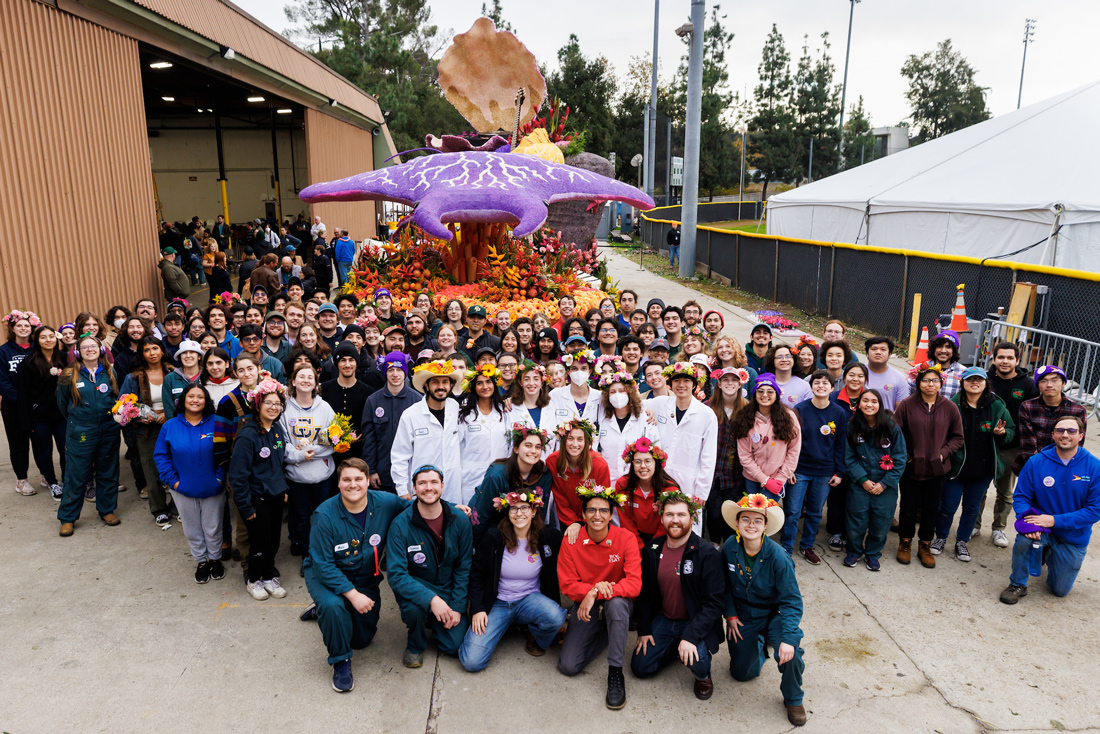
Photo by Joe Johnston
Cal Poly and Cal Poly Pomona have worked together to create floats since 1949, making the team the fourth oldest float builder in the parade and the only student-built float. The first float’s budget was a meager $258. Today, more than 400 students from both universities participate in the yearlong float creation process.
Cal Poly Rose Float has won 62 awards in 75 years
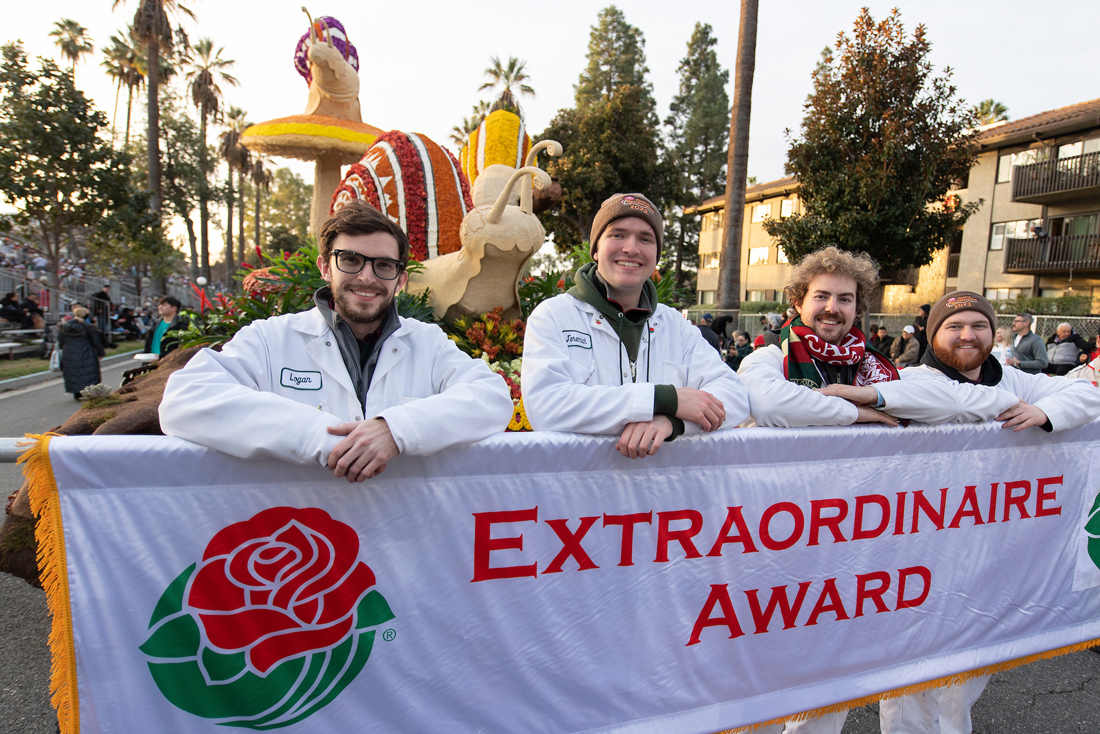
Photo by Tom Zasadzinski
Cal Poly took home the Crown City Innovator Award for outstanding use of technology, innovation and imagination for 2024’s “Shock n’ Roll: Powering the Musical Current.” Cal Poly has earned the Extraordinaire Award, given to the most extraordinary float in the parade, for two entries: 2019’s “Far Out Frequencies” and 2023’s “Road to Reclamation.” Students are still striving to win the Sweepstakes Award, which is considered to the parade’s top honor.
Cal Poly is currently the only float program to grow their own floral materials
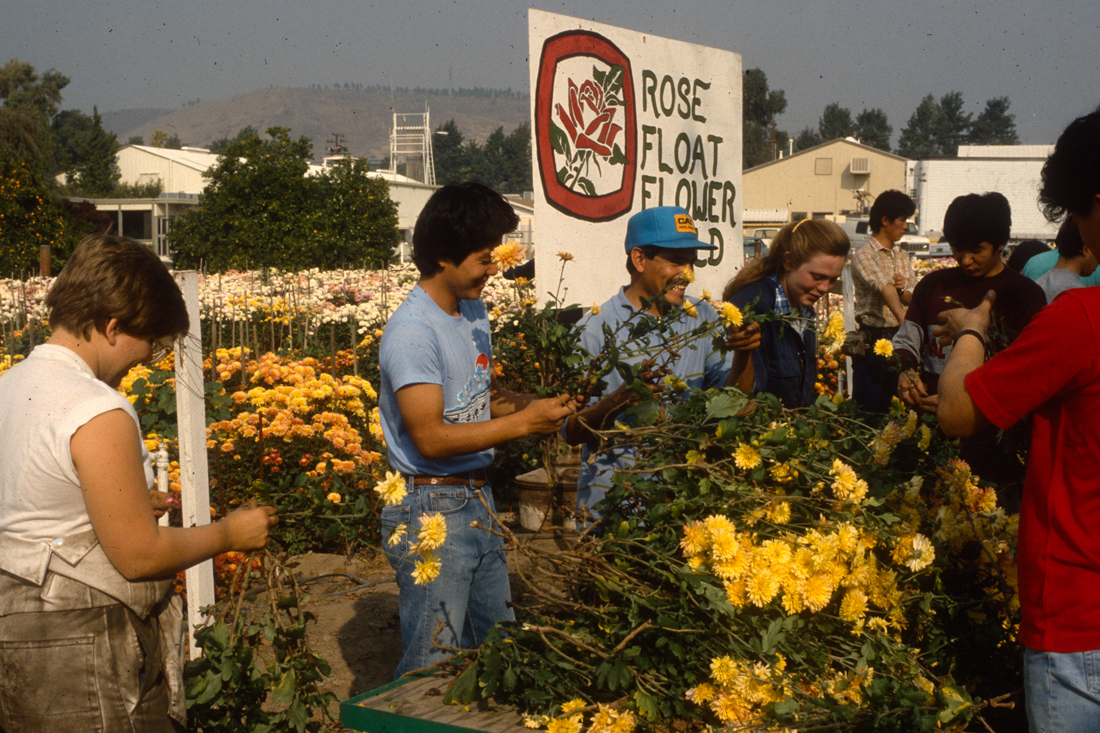
Students and volunteers harvest flowers from the Cal Poly Pomona campus field. Image courtesy of University Archives Photograph Collection, Special Collections and Archives, Cal Poly
Cal Poly Pomona’s campus has grown its own flowers for decades. Students in San Luis Obispo restarted the campus flower field program in 2010 thanks to a student leader’s initiative. The fields grow strawflower and marigolds to be dried for textural elements. In the fall, students from each campus harvest flowers and preserve them for the next parade.
Each float has a few Easter eggs
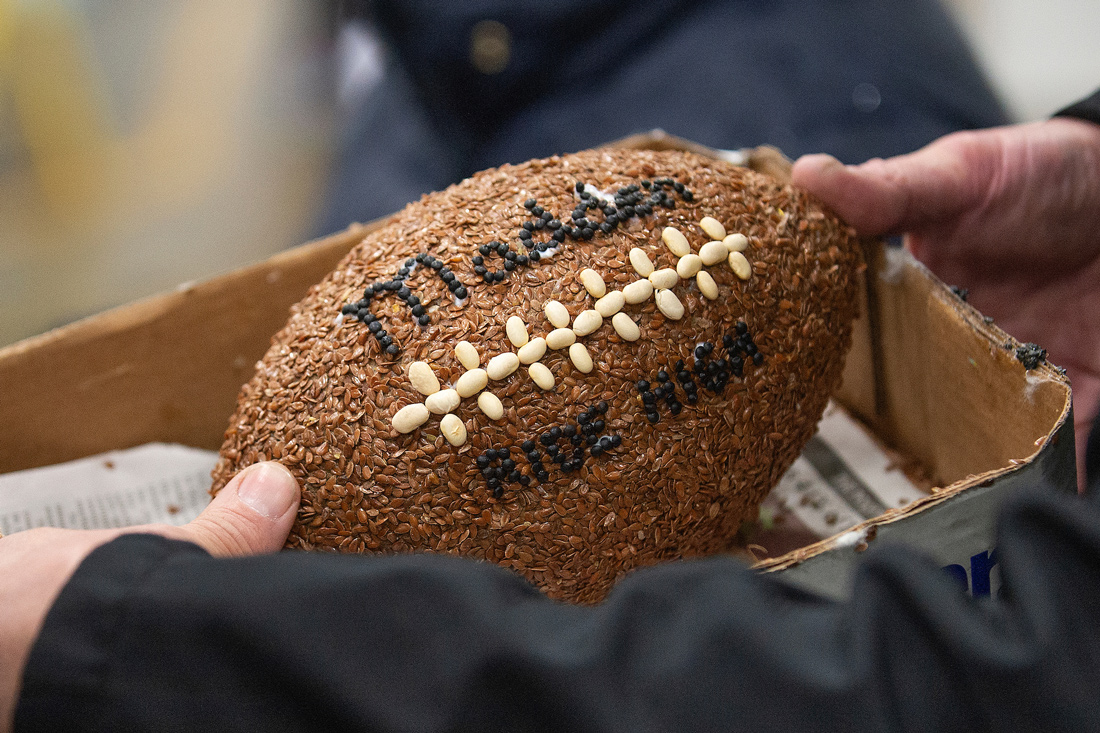
Photo by Tom Zasadzinski
Floats feature a series of recurring symbols and inside jokes, including a spoon, a mushroom, Mickey Mouse and a character in Rastafarian colors. Some hidden tributes are more sentimental. In 2022, the float carried a football in memory of alumnus John Madden, who passed just a few days before the parade.
Part of the float’s body is Learn by Doing project
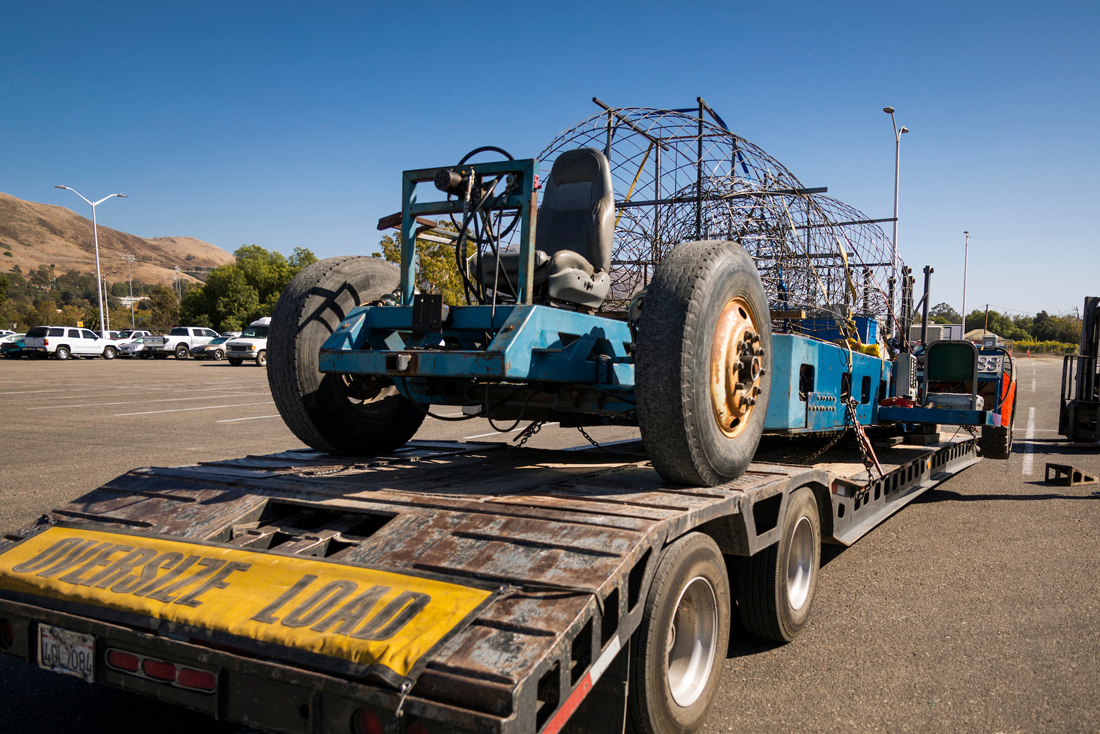
Photo by Joe Johnston
Students in the BioResource and Agricultural Engineering (BRAE) program at Cal Poly created the base of San Luis Obispo’s portion of the float as part of a hands-on class held in the spring of 2001. Gary Weisenberger’s BRAE 344: Fabrication Systems course divided into two teams: one that designed and fabricated the main frame of the float, and one responsible for designing and fabricating the engine frames that could be moved and relocated within the float’s frame. Weisenberger has strong ties to the Rose Float program. He was the first advisor for the program from 2000-2002, and the driver who trucked the float to and from Pomona for 40 years, beginning in the 1970s.
Students, alumni and volunteers watch the parade from Colorado Boulevard
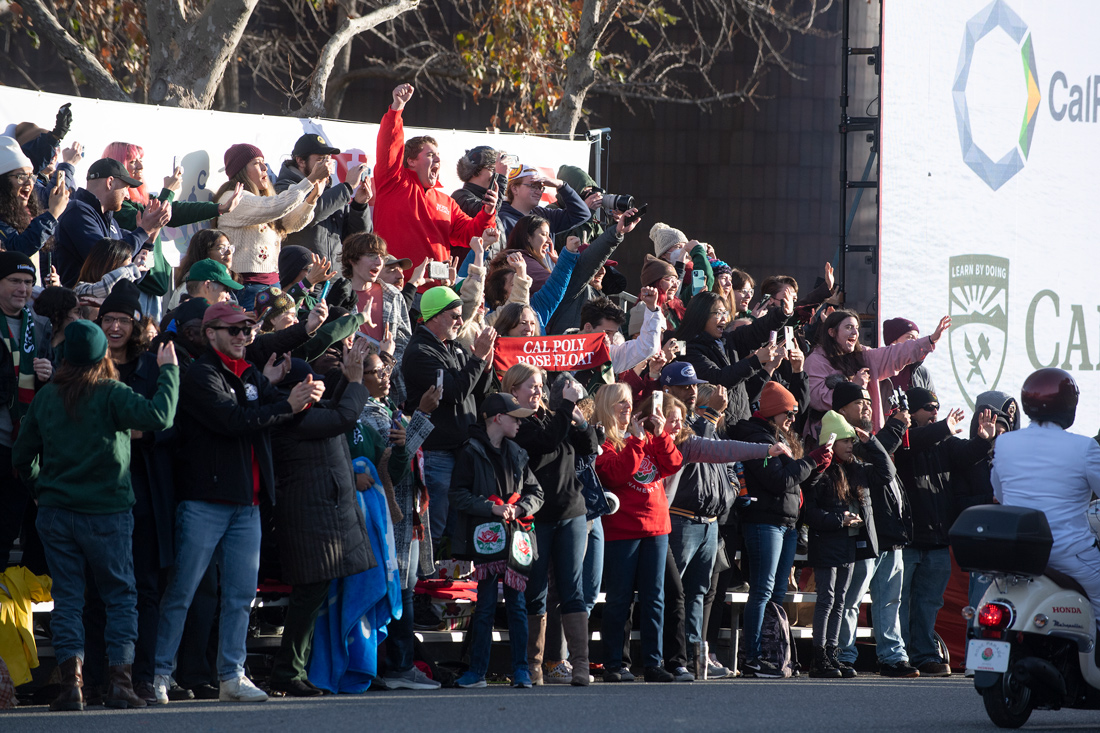
Photo by Tom Zasadzinski
The Cal Poly section of the parade is always filled with pride (and sometimes even university presidents). In the ‘80s and ‘90s, float operators had a tradition of opening a hatch near the bottom of the float and spraying Cal Poly’s cheering section with water, but that horseplay has since ceased.
The pandemic led to Spring Wings
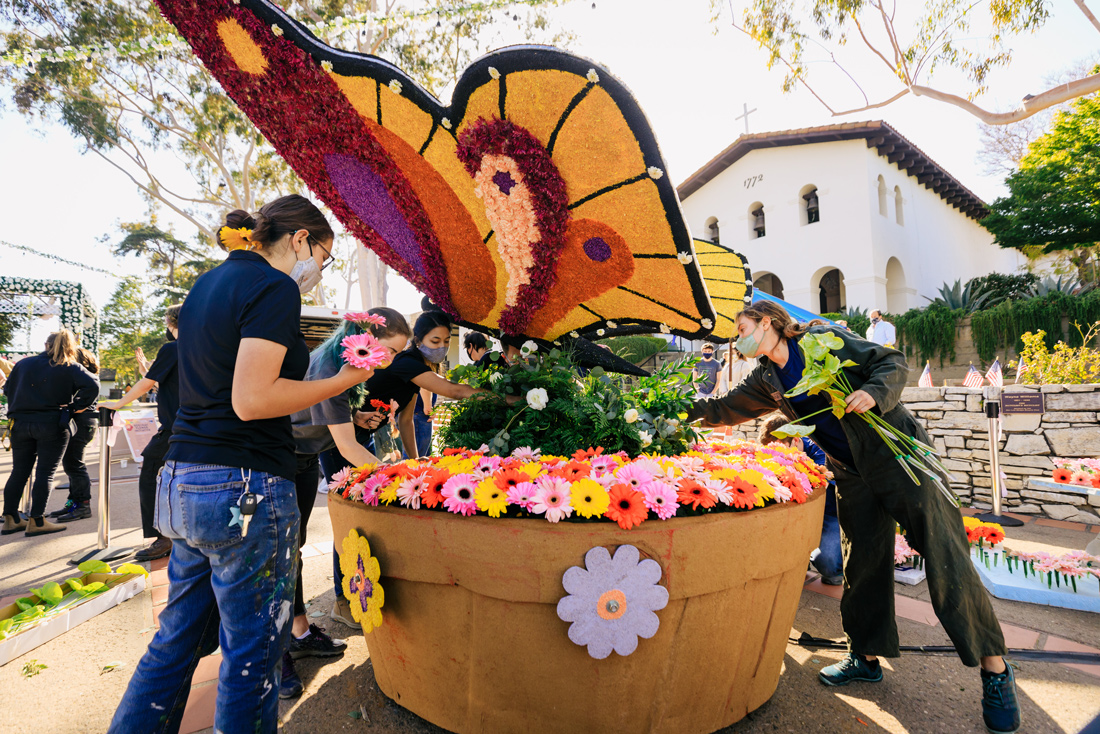
Photo by Joe Johnston
When the COVID-19 pandemic halted the 2021 Tournament of Roses Parade, students got creative. Dozens of Mustangs created the “Spring Wings” art installation in San Luis Obispo’s Mission Plaza to inspire the community and flex their artistry. Several pieces of the installation were animated, including a few spinning flowers and a curious caterpillar.
Recent float concepts are commemorated in the San Luis Obispo Rose Float lab
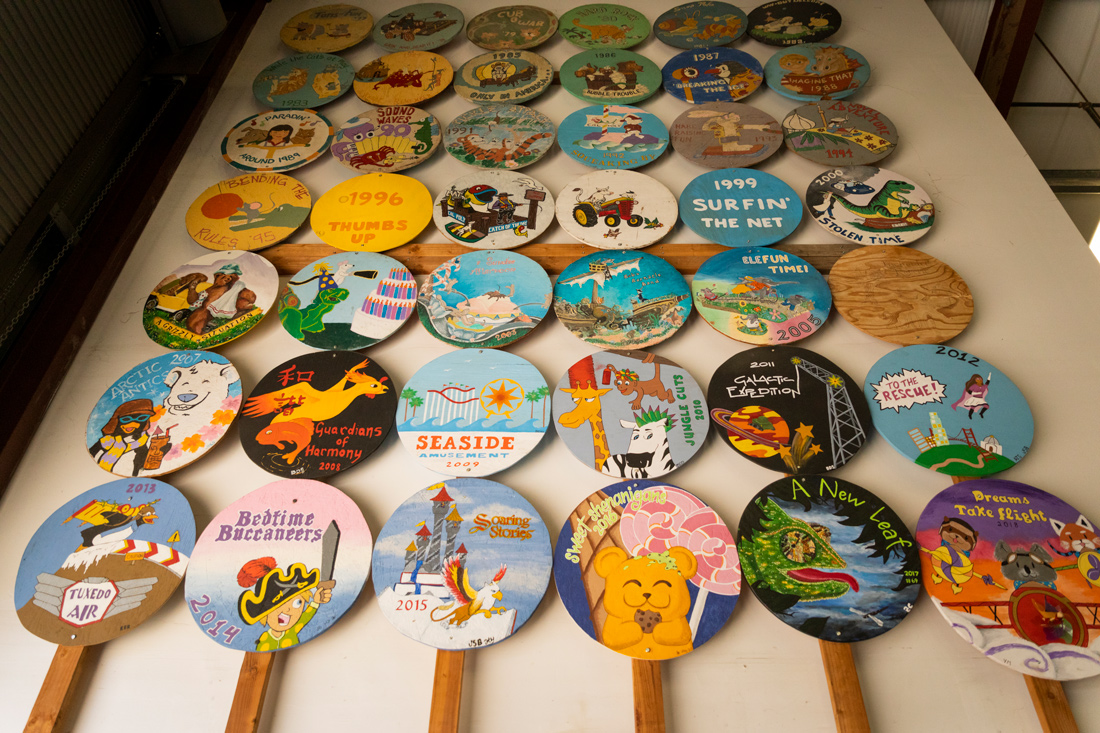
Photo by Joe Johnston
Since 1977, San Luis Obispo’s team has created a unique wood circle representing each float design. The rounds used to be featured in a large red sign on the building’s exterior, but now hang in chronological order in the lab. Some alumni have even borrowed the wooden rounds for special events, like weddings, to commemorate where a romance first blossomed.


